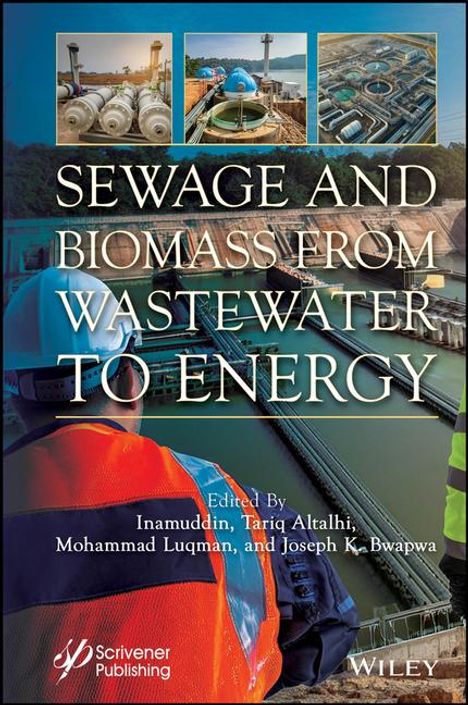Sewage and Biomass from Wastewater to Energy, Gebunden
Sewage and Biomass from Wastewater to Energy
- Possibilities and Technology
(soweit verfügbar beim Lieferanten)
- Herausgeber:
- Inamuddin, Tariq Altalhi, Mohammad Luqman, Joseph K Bwapwa
- Verlag:
- Wiley, 07/2024
- Einband:
- Gebunden
- Sprache:
- Englisch
- ISBN-13:
- 9781394204311
- Artikelnummer:
- 11762007
- Umfang:
- 448 Seiten
- Gewicht:
- 857 g
- Erscheinungstermin:
- 18.7.2024
- Hinweis
-
Achtung: Artikel ist nicht in deutscher Sprache!
Klappentext
Written and edited by a team of industry experts, this exciting new volume covers clean energy production from sewage and biomass while achieving a zero-waste strategy.
Wastewater treatment plants are critical in protecting both the environment's resources and human health. A wastewater treatment plant's technological system focuses not only on the effectiveness of the treatment but on the costs and energy consumption of the entire system. Municipal wastewater treatment produces a significant amount of sewage sludge all over the world. The majority of this sludge's dry matter content is made up of organic compounds which are not toxic, and they consist of both primary and secondary (microbiological) sludge. There is also a substantial quantity of inorganic substances in the sludge, along with a small quantity of toxic matter. Also, various raw sewage treatment options can include energy production (heat, electricity, or biofuel) to reduce dependence on external energy supply during treatment. The most important options used for energy production from sewage and biomass can use the following approaches: anaerobic digestion, co-digestion, incineration with energy recovery, co-incineration, pyrolysis, gasification, supercritical (wet) oxidation, and hydrolysis. Generally, these processes or methods are cost-effective, but they can still have some setbacks related to the nature of the methods or the raw material used for conversion. There are also operating conditions to comply with to get a successful outcome.
This book combines information from many disciplines related to wastewater treatment technologies to show how the circular economy approach can be used to achieve zero waste and produce energy that can be useful for plants and communities. This approach focuses on clean technologies for green energy resources such as biohydrogen, biofuels, and biogas from biomass and sewage sludge for zero waste production. This is aimed to also integrate the issue of energy demand and the one of energy production.
Biografie (Mohammad Luqman)
Mohammad Luqman, PhD, is serving as an Assistant Professor in Chemical Engineering Department, King Saud University (KSU), Saudi Arabia. He teaches Polymer/Material Science and Engineering courses. Before joining the KSU, he served as an Assistant Manager in Samsung Cheil Industries, Korea. He worked on the development of heat resistant polymers, organic glass, and block copolymers as impact modifiers and compatibilizers for engineering alloys. He served as a post-doctoral fellow at Artificial Muscle Research Center, Konkuk University, Korea, in the field of Ionic Polymer Metal Composites. He was awarded the PhD degree in 2007, in the field of Ionomers, by Chosun University, Korea. Dr. Luqman published numerous papers, and book chapters in the field of Ionomers, Ion-exchange Polymers and Polymer Nanocomposites. One of his Papers, published in "Polymer", Elsevier, was Ranked the "First" among the "Top 25 Hottest Articles", in "All" Chemistry Journals during April to June 2008. Dr. Luqman is acting as a Regional (Middle East) Editor to an International Journal Chemical and Environmental Research , MAAS, India. He also serves as a Section Editor to Journal of Industrial Research & Technology , HATAM Publishers, Malaysia. He delivered few invited lectures at International podiums. Very recently, Dr. Luqman served as an Invited Editor to a reference book entitled Recent Advances in Plasticizers

